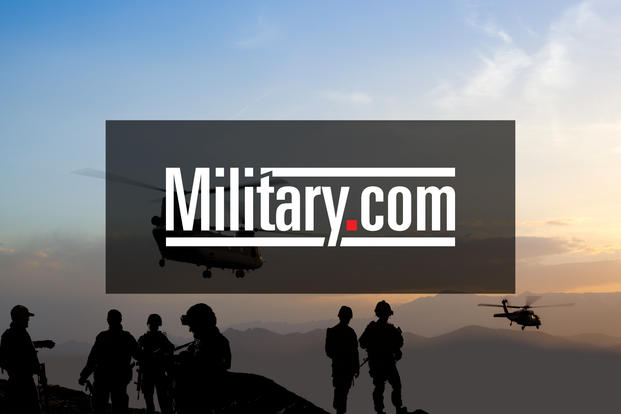President Donald Trump went to Fort Drum in upstate New York on Monday to sign the nearly $717 billion National Defense Authorization Act, which includes a 2.6 percent military pay raise and could set the stage for creation of a Space Force.
Trump never mentioned Sen. John McCain, R-Arizona, a harsh critic who is battling brain cancer, in his remarks to troops at the base, home to the Army's much-deployed 10th Mountain Division, although the bill is named the "John S. McCain National Defense Authorization Act for Fiscal Year 2019."
In a statement marking the signing, McCain never mentioned Trump, with whom he has clashed on a range of issues from health care to the Helsinki summit with Russian President Vladimir Putin.
"This year's NDAA represents an important opportunity to implement an effective approach to confront a growing array of threats," McCain said, adding that the administration's National Defense Strategy "outlined a framework for identifying and prioritizing these threats," with an emphasis on building readiness to deter China and Russia.
Related content:
- See the proposed 2.6 percent active duty pay raise for 2019
- See the proposed 2.6 percent drill pay raise for 2019
- Military Pay calculator
- Senate Sends $716 Billion Defense Policy Bill to Trump for Final Approval
- House Passes Compromise NDAA, Defense Policy Bill Heads to Senate
- Lawmakers Approve 2.6 Percent Troop Pay Raise
- Congress Fails to Fund Trump's 'Space Force' in Defense Budget Bill
In a hangar at Fort Drum, with an Apache attack helicopter as a backdrop, Trump said, "The NDAA is the most significant investment in our military and in our warfighters in modern history, and I'm very proud to be a big, big part of it."
Putting the NDAA in place will give impetus to his plan to create a Space Force as a sixth branch of the military, he said.
"Space has become a warfighting domain. Adversaries are weaponizing space," Trump said. "They want to jam transmissions," but "we'll be catching them very shortly.
"We must have American dominance in space," he said while gesturing to Joint Chiefs Chairman Gen. Joseph Dunford, who attended the signing. "Gotta get it, Joe. Right Joe?"
Trump devoted much of his speech to touting job creation and the economy, but said the NDAA will boost the size of the military by 15,000, while adding 13 new ships, 77 F-35 Joint Strike Fighters and full funding for the new strategic B-21 Raider bomber.
He said the Army will get 135 "brand-new" Abrams M1A1 tanks, 60 Bradley fighting vehicles and new Black Hawk and Apache helicopters for the Army National Guard.
"Our bases and vital equipment were allowed to fall into a state of disrepair" under the previous administration," Trump said, but "this authorization gives America's warfighters the firepower they need to win any contest."
The 2.6 percent pay increase would be the biggest for the military in nine years. Estimates are that the pay raise will translate into about $670 more annually for junior enlisted troops and about $1,300 more for senior enlisted and junior officers.
The NDAA put forward by a House and Senate Conference Committee and signed by Trump essentially avoided the Space Force issue, but House and Senate appropriators have yet to rule on how the money will be allocated.
Last week at the Pentagon, Vice President Mike Pence outlined Trump's proposal for a Space Force as a new sixth branch of the military and called for Congress to allocate $8 billion to advance space security systems to begin implementing Trump's plan.
When the House and Senate agreed on the NDAA, Defense Secretary Jim Mattis noted that the bill was being sent to the president earlier than in recent years.
He said the timing could possibly avoid the continuing resolutions and threats of government shutdowns that have plagued the military budget process in the past.
"I'm grateful for the strong commitment of members on both sides of the aisle to pass this year's NDAA in record time," Mattis said. "Together, they have demonstrated the deep and abiding bipartisan support our military enjoys."
Rep. Mac Thornberry, R-Texas, chairman of the House Armed Services Committee, said the NDAA "takes important steps to confront the aggressive behavior of Russia, China and others" in line with the National Defense Strategy outlined by Mattis.
"Most of all, it helps ensure that our troops get what they need to carry out the missions they are assigned" for the current counter-insurgency missions in Iraq, Syria, Afghanistan and elsewhere, he said in a statement.
Thornberry also noted that the NDAA is a policy bill authorizing funds to be spent, but figuring out the allocations and how to pay for it is still up to Senate and House appropriators.
"It is now essential that we follow this bill with matching appropriations before the beginning of the fiscal year" on Oct. 1, he said.
Sen. Jim Inhofe, R-Oklahoma, the senior Republican on the Senate Armed Services Committee after McCain, echoed Thornberry on the need for the appropriators to back up the NDAA policy with funding.
"This is the earliest that the NDAA will have been signed into law in more than 40 years, but that historical significance will be lost if we fail to pass appropriations to match the authorization enacted today," he said in a statement.
At Fort Drum, Trump invited members of the 10th Mountain's 2nd Brigade Combat Team to gather round him as he signed the NDAA.
"There's no better place than right here at Fort Drum to celebrate its passage. No division in the Army has been deployed more times to Iraq and Afghanistan than you," he said of the 10th Mountain. "Through it all, you've proven to the world, to our country, to your families, that Fort Drum soldiers aren't just tough, you are mountain tough."
-- Richard Sisk can be reached at richard.sisk@military.com.












